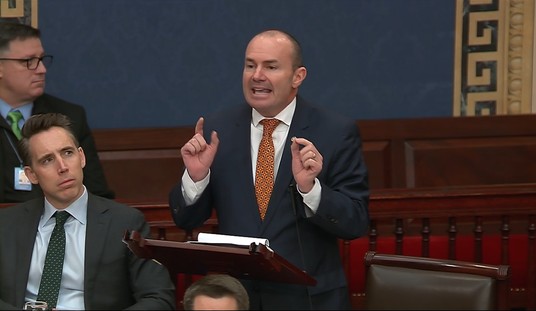You need to read the opening of Ben Domenech’s Transom today. Just ponder this part.
But for those in the media claiming this lack of leadership clarity and [mc_name name=’Rep. Kevin McCarthy (R-CA)’ chamber=’house’ mcid=’M001165′ ]’s failure to launch is some terrible thing for the Republican Party in the 2016 presidential stakes – I’m sorry, it is to LOL. This Congress is incredibly unpopular, and disrupting its leadership is a good thing for a party whose base is incredibly frustrated with those they see as ignoring their frustrations. This is also the way the House was originally envisioned to work – with a lot more upheaval and changes in leadership in response to public will. 43 of the 53 Americans who have been Speaker held the job for less than 5 years, and that’s a good thing.
Exactly.
The passion in the House was a feature baked in by the Founding Fathers — like gridlock. Both are features in the system, not bugs. If anything, the gregarous, get along to go along House of the last forty years has been the bug in the system.
The Founders knew that democracy was messy, so they created a representative democracy instead of relying on direct democracy. And they knew that the House would be the messy House, the House of Common(er)s. I mean consider that, though there was no real party composition in the beginning, 44% of the House of Representatives was anti-George Washington. Only 31% of the Senate was.
Just consider who was in the House in 1789. Sure you had James Madison and Roger Sherman, but you also had a ton of people no really remembers. Contrast the House then with the statesmen of the Senate who included Richard Henry Lee, James Monroe, Robert Morris, and was presided over by John Adams.
The House is supposed to be passionate. It represents the people, not the states, and the American people are passionate. Factions and factionalism are supposed to run rampant in the House. In fact, James Madison, in writing Federalist 58, warned of precisely what has been happening in the House over the past few decades.
One observation, however, I must be permitted to add on this subject as claiming, in my judgment, a very serious attention. It is, that in all legislative assemblies the greater the number composing them may be, the fewer will be the men who will in fact direct their proceedings. In the first place, the more numerous an assembly may be, of whatever characters composed, the greater is known to be the ascendency of passion over reason. In the next place, the larger the number, the greater will be the proportion of members of limited information and of weak capacities. Now, it is precisely on characters of this description that the eloquence and address of the few are known to act with all their force. In the ancient republics, where the whole body of the people assembled in person, a single orator, or an artful statesman, was generally seen to rule with as complete a sway as if a sceptre had been placed in his single hand. On the same principle, the more multitudinous a representative assembly may be rendered, the more it will partake of the infirmities incident to collective meetings of the people.
Ignorance will be the dupe of cunning, and passion the slave of sophistry and declamation. The people can never err more than in supposing that by multiplying their representatives beyond a certain limit, they strengthen the barrier against the government of a few. Experience will forever admonish them that, on the contrary, AFTER SECURING A SUFFICIENT NUMBER FOR THE PURPOSES OF SAFETY, OF LOCAL INFORMATION, AND OF DIFFUSIVE SYMPATHY WITH THE WHOLE SOCIETY, they will counteract their own views by every addition to their representatives. The countenance of the government may become more democratic, but the soul that animates it will be more oligarchic. The machine will be enlarged, but the fewer, and often the more secret, will be the springs by which its motions are directed.
As the House has gotten larger, it has traded democracy for oligarchy.
This disruption we are now seeing is good. It is a restoration of the very democracy the House was designed to both perform and contain. The people pissed off about it are the people who love the oligarchy and the elite calling all the shots because they tend also to be the people contemptuous of the heartland.












Join the conversation as a VIP Member